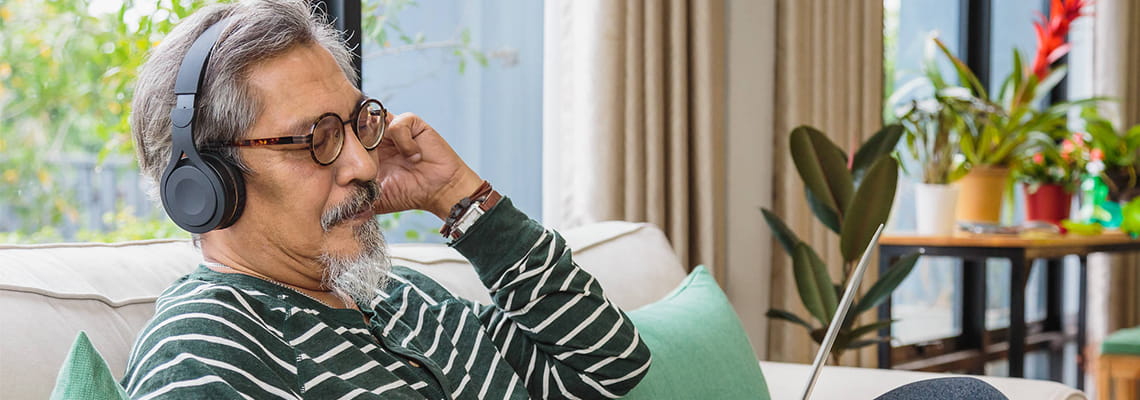Can Music Be Used As Medicine?

Most people think of medication and talk therapy as psychiatry's best remedies for mental health issues, but doctors are increasingly enlisting a more visceral treatment: music.
To people suffering symptoms of depression and anxiety, the music in their heart, mind and soul can be a lifeline, says Dr. Segundo Robert-Ibarra, a psychiatrist at Houston Methodist. It represents a kind of sonic toolkit.
"Music is a way to reach people initially resistant to traditional talk therapy," says Dr. Segundo Robert-Ibarra, a psychiatrist at Houston Methodist. "Grief and depression have a way of high-jacking the mind and creating a sense of no longer being yourself. Listening to familiar music that has a personal meaning can be a way for people to remember who they were before experiencing trauma."
The non-traditional approach, known as music therapy, has been shown to have significant potential treating grief, guilt and loneliness in addition to depression and anxiety.
It's is available to patients at Houston Methodist through its Center for Performing Arts Medicine (CPAM). The center also conducts research to learn more about the effects of music on the brain.
Mental health conditions are on the rise
Additional tools to treat mental health issues are always welcome. Nearly a third of U.S. adults, 31.6%, reported symptoms of depression and anxiety as of 2021, according to the Kaiser Family Foundation. The rate in Texas was slightly higher — 34.2%.
The COVID-19 pandemic, with its lockdown-induced isolation and widespread feelings of fear and worry, only exacerbated the prevalence of these mental health conditions. Many dealt with loneliness, depression or anxiety and witnessed others deal with them.
But the pandemic also drew more awareness to the need for self-care mental health resources for patients, including the use of music to influence mood. In a recent episode of the Netflix show Stranger Things, a character processing the violent death of her brother is inspired to escape a literal and figurative monster when her friends reconnect with her by playing her favorite song, Kate Bush's Running Up That Hill from 1985. The scene so resonated with people, the song climbed into the Billboard charts' Top 10 this week.
In some ways, of course, music's therapeutic potential should come as no surprise, given the art form's central role throughout history. Many of us routinely turn to headphones or earbuds for our own brand of self-care, seeking soothing tones when anxiety or sadness hits, energetic vibes when we want a boost.
What does music therapy actually do?
But music has the potential to do much more, say researchers.
For instance, a 2019 Houston Methodist Center for the Performing Arts Medicine study found playing familiar music positively affected brain connectivity in patients recovering from stroke.
Although researchers are still trying to figure out the exact mechanism by which music therapy affects the brain, the American Music Therapy Association reports that it is very much clinical and evidence based.
For example, engaging with music can:
- Activate regions of the brain and influence memories, emotions and decision-making
- Lower heart rate and blood pressure
- Relax muscle tension
- Relieve stress
- Encourage feelings of calmness
"Music is so sticky because it interacts with multiple parts of our brain," says John Head, a board-certified music therapist with Houston Methodist Behavioral Health.
"It can help normalize an otherwise chaotic space like an unfamiliar hospital or a monster encounter," adds Head. "It won't cure depression or any other condition, but it is a useful tool to help manage the symptoms."
July 7, 2022
